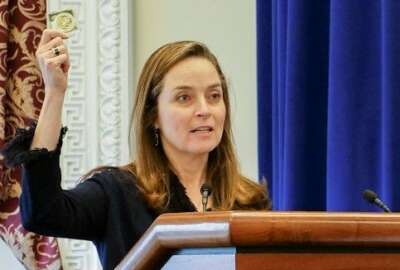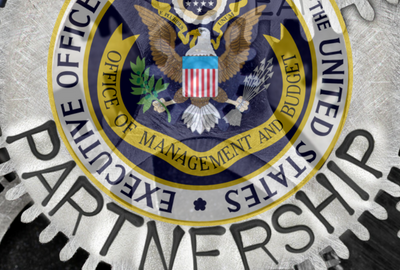OMB, GSA greenlight pilot to recruit ‘neurodiverse’ pool of cyber talent
The Trump administration has awarded nearly a million dollars to private-sector and academic partners for their work brainstorming on some of the most long-standing...
The Trump administration has awarded nearly a million dollars to private-sector and academic partners for their work brainstorming on some of the most long-standing challenges facing the federal workforce.
The General Services Administration and Office of Management and Budget on Tuesday announced three winners of the administration’s Government Effectiveness Advanced Research (GEAR) Center Challenge, which each received a $300,000 grand prize. GSA and OMB also gave a shout-out to five honorable mentions.
Margaret Weichert, OMB’s deputy director for management and acting director of the Office of Personnel, said an announcement was imminent at a White House AI Summit on Monday.
The Gear Center Challenge, Weichert said in a statement Tuesday, aimed to “promote innovation” as part of the President’s Management Agenda.
“GEAR Center Challenge submissions are promising examples of how innovative public-private partnerships can transform government mission delivery, service to citizens and stewardship,” she said. “The GEAR Center is already creating incentives for cross-sector collaborations that will better serve the American people.”
The GEAR Center Challenge comes at a time when the federal government has already seen a surge in offering cash-for-idea style contests. A report released by the GSA and the White House’s Office of Science and Technology Policy in June found that the number of opportunities on Challenge.gov increased from 744 in fiscal 2016 to 875 in 2018.
GSA Administrator Emily Murphy said the GEAR Center Challenge winners have brought forward ideas that will “influence how the federal government performs” and strengthen the relationship between government, academia and the private sector.
“The GEAR Center challenge is a creative approach that engages the U.S. research and development system to help government adapt and improve in a rapidly changing world,” Murphy said in a statement.
The prize-winning ideas recognized by OMB and GSA address the three “gears” of transformation outlined in the PMA — the workforce, technology and data.
In order to address the federal government’s shortage of cybersecurity workers, a team of university academics and officials from the MITRE Corporation has proposed a pilot to recruit from a neurodiverse pool of talent that includes people with autism.
The team, in a synopsis of their proposal, suggested, “Neurodiverse individuals, which include those with autism, are a potential untapped source of talent to fill federal cyber positions, and can be more likely to be retained by federal agencies given their strong fit with cyber work.”
The team looks to pilot a Federal Neurodiversity Cyber Workforce program, with a focus on helping agencies “identify, hire, onboard, train, support and retain neurodiverse individuals for cyber positions.”
For data solutions, a team led by the Volcker Alliance’s Government-to-University Initiative and Johns Hopkins University Centers for Civic Impact looks to reshape an existing training curriculum aimed at teaching 250 federal employees in Kansas City how to better implement evidence-based decision-making at their agencies.
“When trying to smartly deploy scarce government resources, using data to drive decision-making is imperative. It is critical that federal practitioners improve how they use data for decision-making and accountability, including for policy development, innovation, oversight and learning,” the team wrote.
The Trump administration has already made data-driven decision-making a major focus through OMB’s recent guidance on the Foundations for Evidence-Based Policymaking and the one-year action plan for the Federal Data Strategy.
Another data-centric, prize-winning idea looks to leverage existing administrative data to measure the impact of agency programs. The project, proposed by SkillSource Group and Third Sector Capital Partners, builds on existing state government pilots to “integrate currently disparate data.”
“Currently, data on federally funded workforce, education and human services programs are too often held in siloes that prevent local, state and federal agencies from assessing the true impact of their joint service delivery,” the team wrote.
Copyright © 2025 Federal News Network. All rights reserved. This website is not intended for users located within the European Economic Area.
Jory Heckman is a reporter at Federal News Network covering U.S. Postal Service, IRS, big data and technology issues.
Follow @jheckmanWFED
Related Stories

Race is on to create GEAR Center for federal applied research




